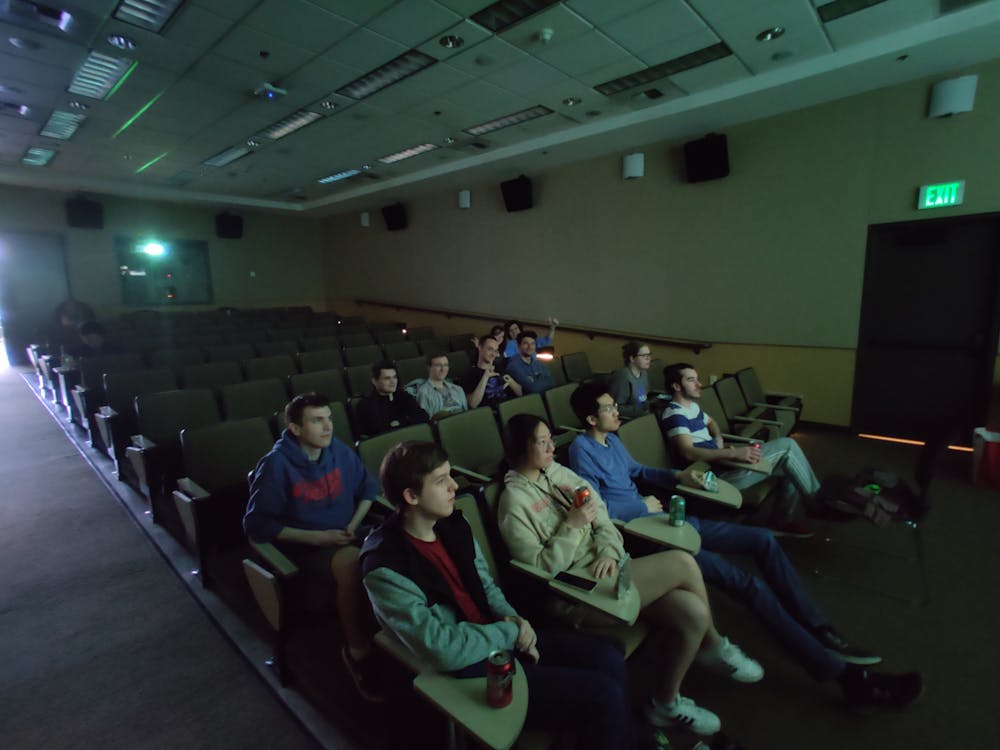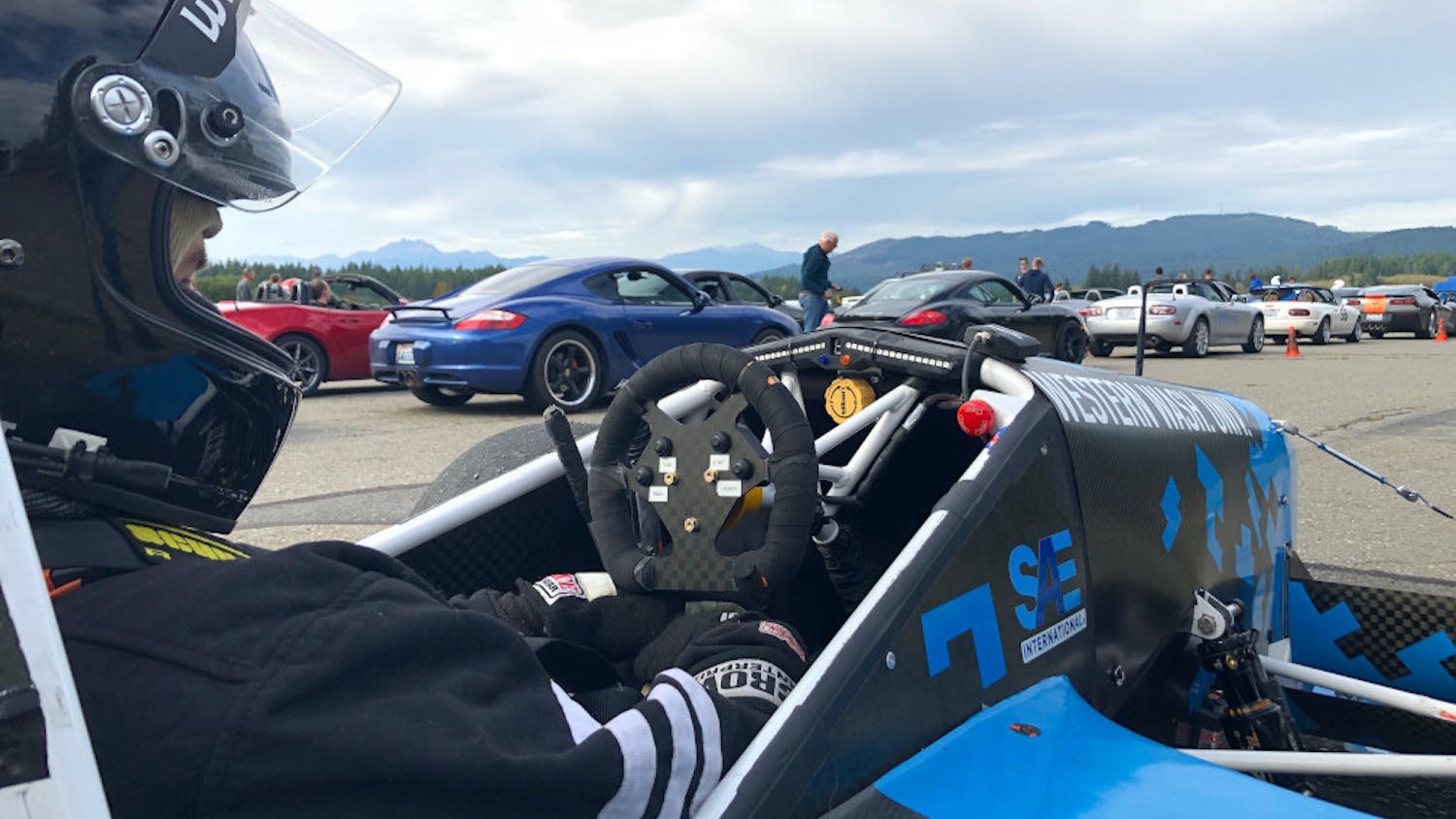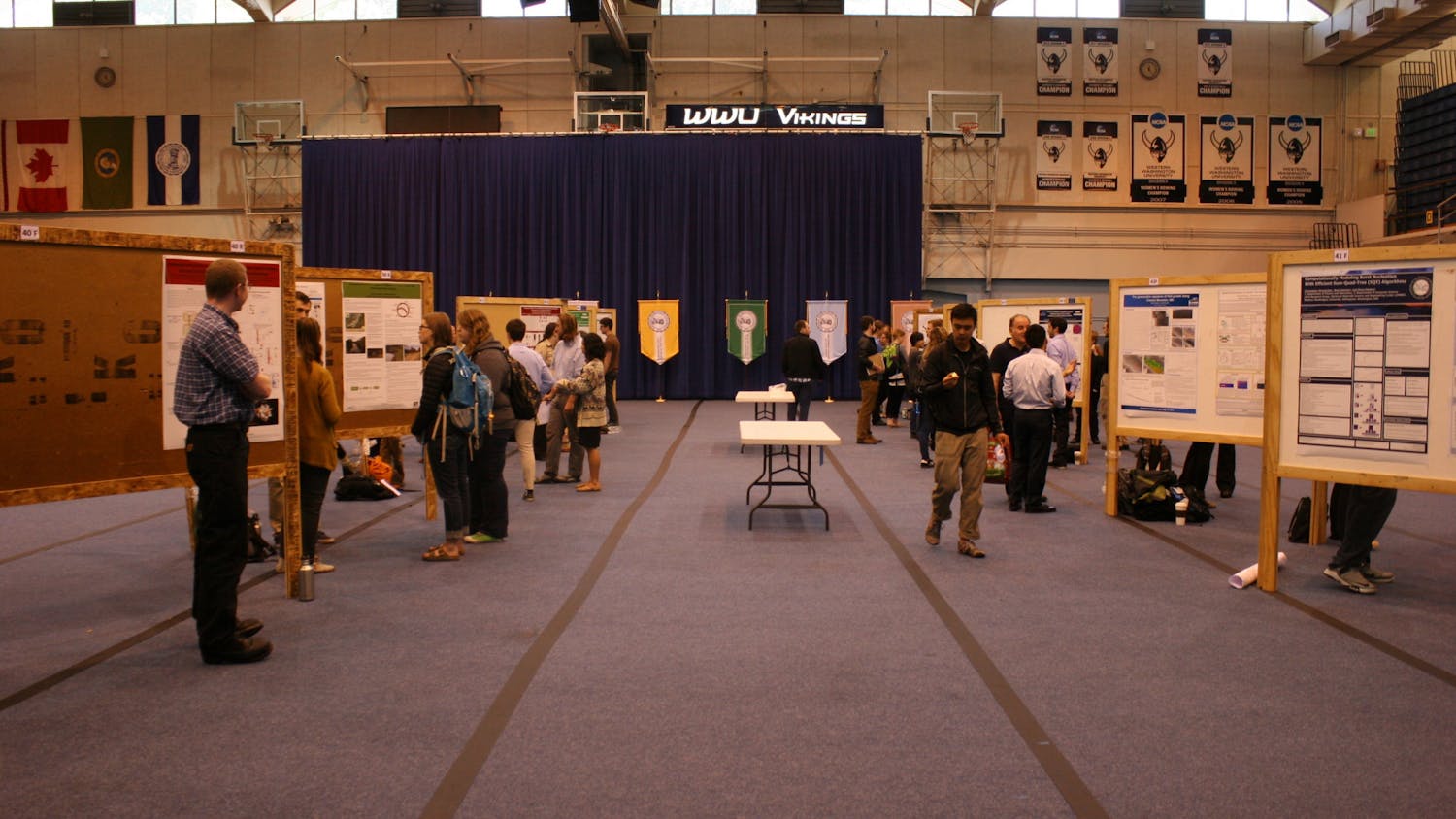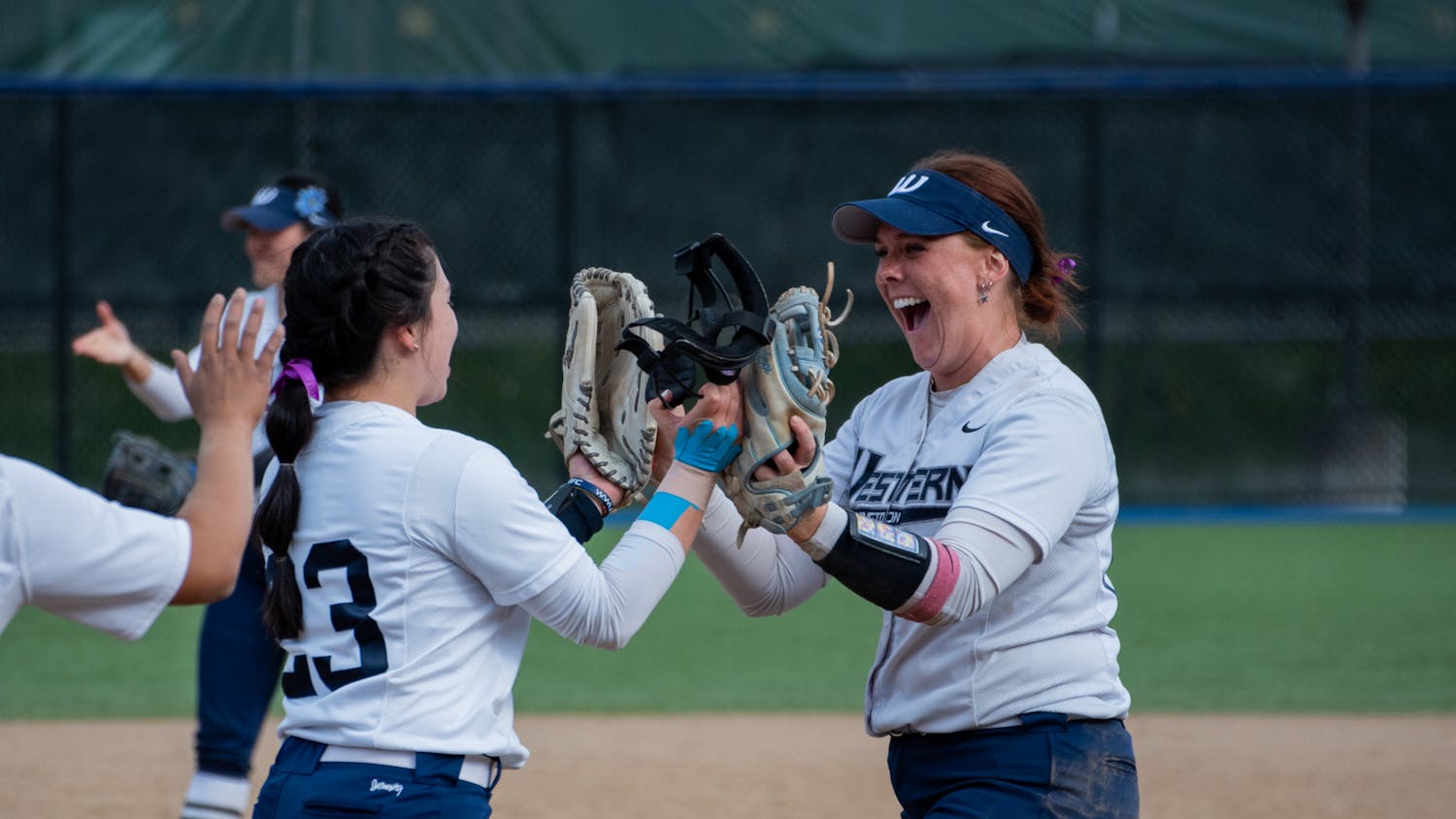Inside a Viking Union lecture hall, passionate fans of the game crowded near a large projector screen to watch. League of Vikings, a club at Western Washington University, intended for players of the video game League of Legends, held a live watch event for the League Championship Series Spring Finals on April 24.
The LCS is North America’s professional esports league for League of Legends. The winner of the LCS Spring Finals receives $100,000 and an automatic bid to MSI 2022, a tournament where the world's best teams from each region compete.
Matthew McElrath, the vice president of the club, was crucial in setting up the event.
“I handle a lot more of our in-person events, general organization,” McElrath said. “I do most of the paperwork at the moment, to help the club pull off its events.”
The League of Vikings had been planning its LCS watch event for months.
“We knew we were going to do it two months ago,” McElrath said. “But unfortunately there wasn’t too much info on what time frame or date until about three-four weeks ago."
The club had some help in setting up the event from Western’s Associated Students Club Activities Office.
Jenn Cook, the club activities manager at Western, explained the setup required for this type of event.
“Securing the venue space and working with VU Event Services for anything that is needed (special set up, extra tables or chairs, tech equipment, etc.),” Cook said in an email.
The League of Vikings didn’t need much help, Cook said.
“I think this one was pretty straightforward so there wasn’t a lot needed! They purchased pre-packaged food, so that was easy as well, compared to say catering or preparing food that needs health department approvals,” she said.
According to McElrath, the attendance for the event exceeded expectations.
“I think we had roughly 16 people show up today, which was awesome,” McElrath said. “It was a few more people than we thought.”
The event was met with a large amount of enthusiasm, as cheering erupted throughout the match.
“I think it went really well,” McElrath said. “Everyone seemed to be having a lot of fun; it was fairly energetic. A lot of people were cheering or calling out certain plays that the pros made that they thought were good or bad.”
The event was a best of five series between two top North American League of Legends esports teams, 100 Thieves and Evil Geniuses, with Team Evil Geniuses winning the first three games in a row to achieve victory.
“The match was kind of a sweep,” McElrath said. “It could’ve been a little more exciting but it was awesome to see the two teams playing at that high a level.”
Madison Klarkowski, an assistant professor at the University of Saskatchewan developed and evaluated a methodology for the psychophysiological assessment of challenge in the context of digital play in her Ph.D. research.
Klarkowski said the topic of esports viewership is receiving plenty of interest from academics.
“Currently, we know there are many robust motivations for watching esports tournaments,” she said.
Klarkowski said there are a few key factors that cause many to watch others play video games.
“Chiefly among these are entertainment seeking, skill appreciation, game knowledge acquisition and the manifold opportunities for socialization,” she said. “That social motivation appears to be particularly important.”
The social aspect of video games, whether watching or playing, is likely why live, in-person events were frequently hosted by the League of Vikings prior to COVID-19.
“We used to load the game onto computers in labs using USBs,” McElrath said. “We’d have on average 30-35 people who’d chill in-person and we’d all play matches.”
Since COVID-19, support for esports clubs from Western has dwindled.
“We’re still trying to find a workaround because unfortunately recently ATUS decided they aren’t supporting esports clubs, which was a little disappointing,” McElrath said. “We were told it isn’t conducive to the learning environment of the school.”
Despite these setbacks, the League of Vikings has persisted.
“We’ve been fairly active,” McElrath said. “As a gaming club, it’s a lot easier to do online events together, although attendance for those drops drastically. That’s why we’ve started doing social meetings on Mondays.”
The ability to host more in-person events helped the club overcome the difficulties presented by COVID-19.
“When we have in-person clubs to connect everyone, we see a spike in people playing together and you see a lot more social activity,” McElrath said. “There was definitely a drop in how many people were actively participating in the club over COVID-19 without that knowledge of who you’re playing with and that in-person connection.”
McElrath invites any and all League of Legends players to the club, no skill required.
“We’re a club open to players of all levels; we love meeting new people,” McElrath said. “Come swing by our discord. We have a lot of people who hang out there, and we do a lot of online events.”
Theron Danielson (he/him) is a campus news reporter for The Front this quarter. He is in his second year, majoring in Journalism with a minor in Theatre. His writing interests include sports, radio, and student-led events. He enjoys musical theatre, watching anime, and yelling at the TV while watching sports.
You can reach him at therondanielson.thefront@gmail.com or on instagram @therondanielson.






